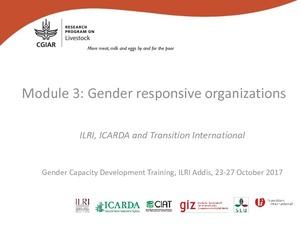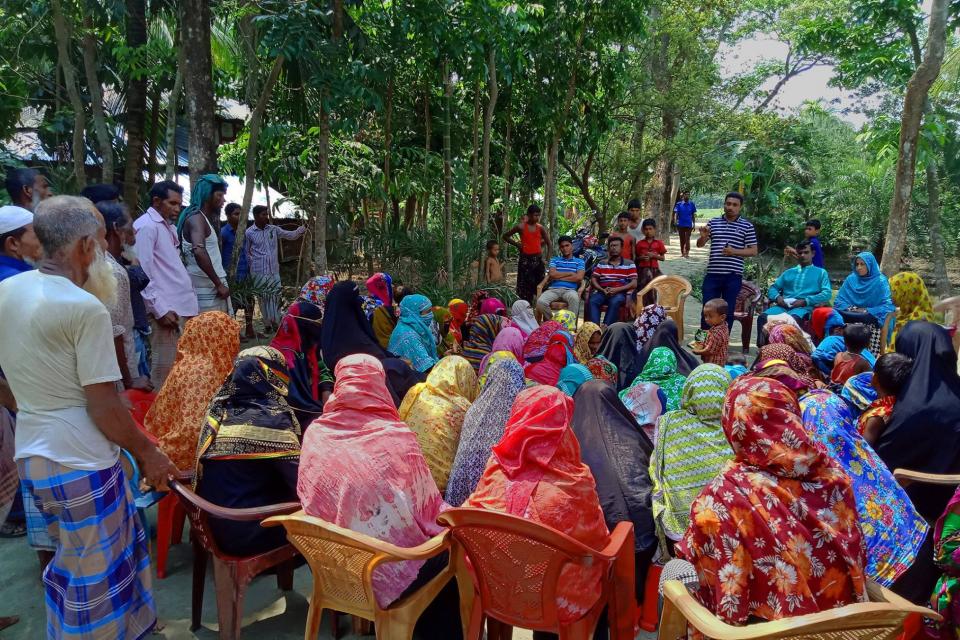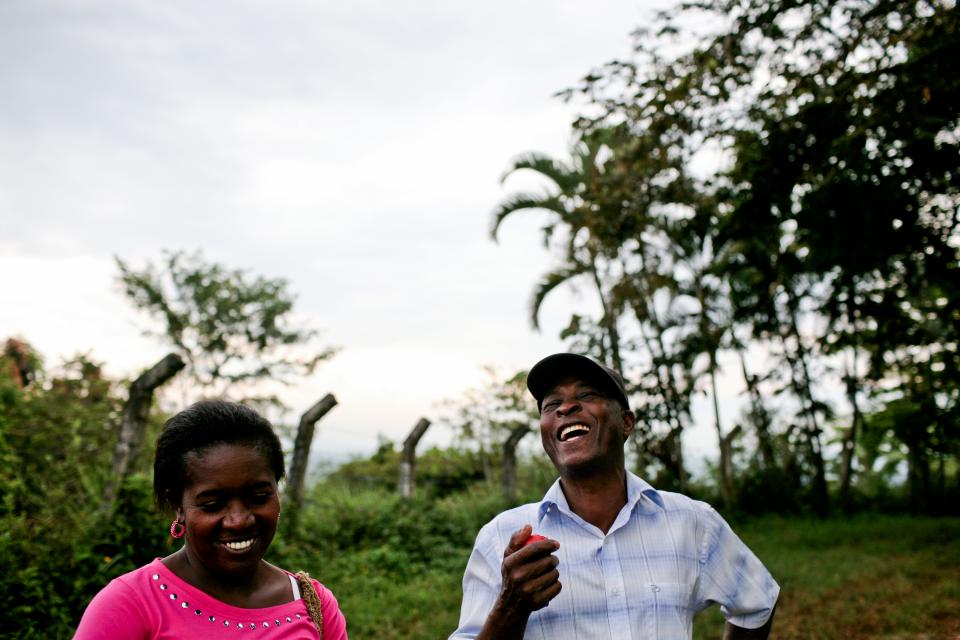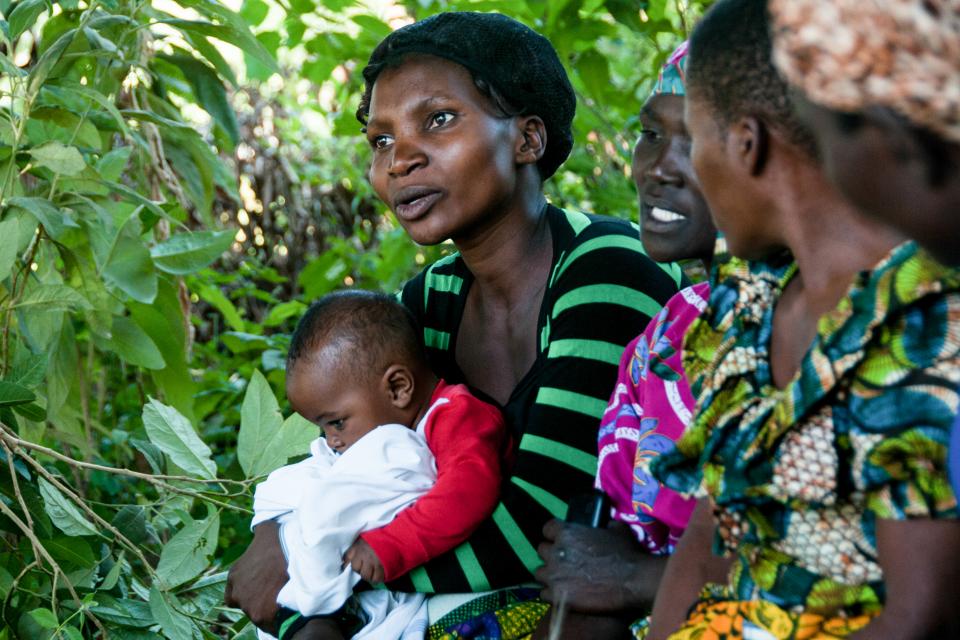Community Conversations: leading communities to talk about women in farmers’ organizations
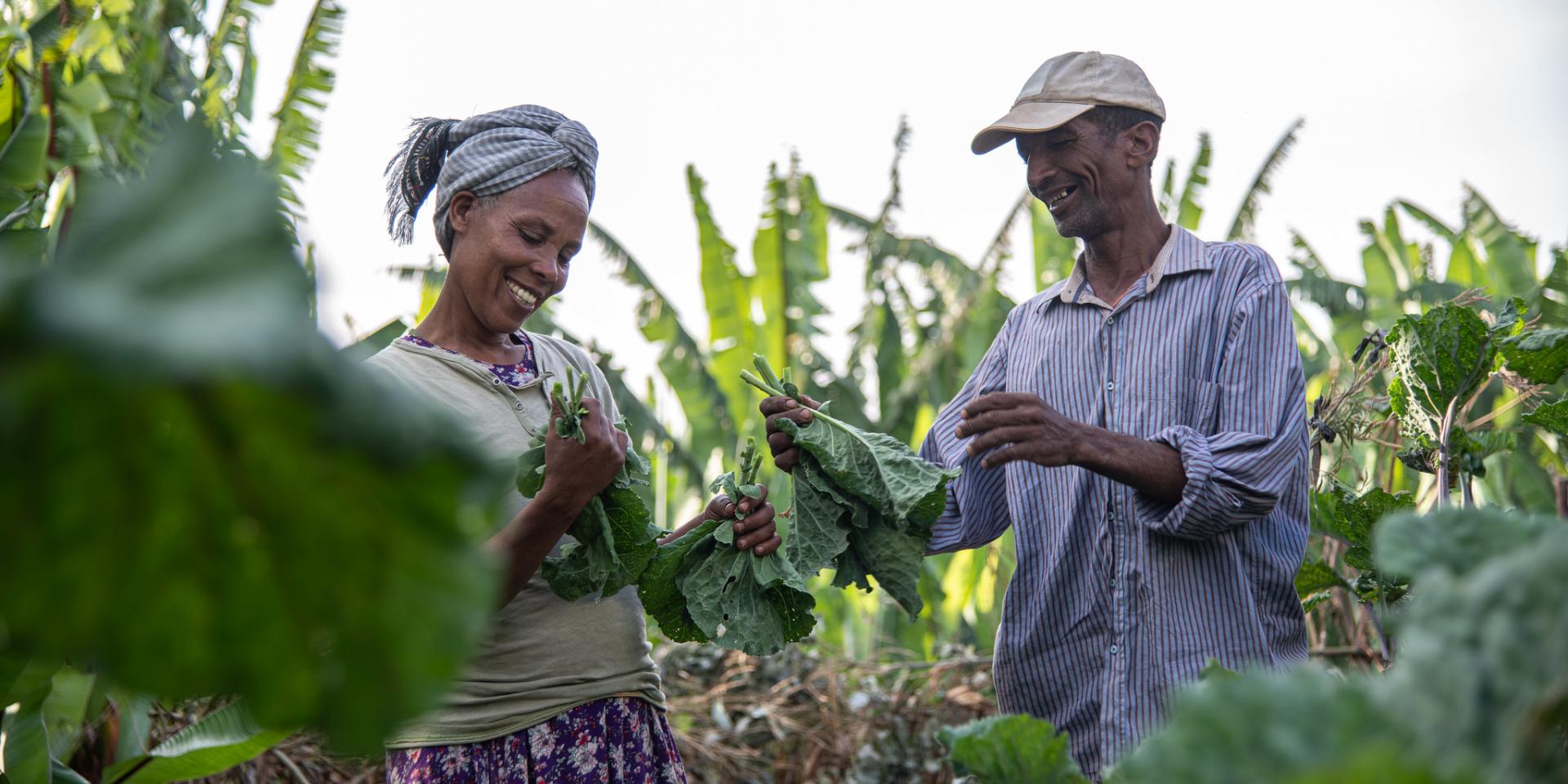 Photo: ILRI/Georgina Smith.
Photo: ILRI/Georgina Smith.
This manual helps local people facilitate community dialogue to increase awareness about women’s participation, benefits and control in farmer organizations.
Why is this manual important?
Farmer organizations (or cooperatives) are essential for people to take part in market activities. A common objective of development programs is to boost women’s participation in this area.
However, the number of women in cooperatives lags.
This manual was developed to guide communities to talk about deep-rooted societal norms and taboos that hinder women from actively participating in farmer cooperatives.
Who is this manual for?
This manual is a guide for regional- and district-level government officers (who train facilitators and set up groups) and the facilitators themselves.
The facilitators who took part in the pilot were selected for:
- good conduct and acceptance by the community
- completion of at least an eighth-grade education
- ability to communicate in local languages
- willingness to volunteer to take training of trainers’ sessions and conduct Community Conversations at the grassroots level
Region of focus: East Africa
How can I use this manual?
Guided by the facilitators, Community Conversations aims to:
- promote an understanding of deeper structural issues concerning women’s participation, benefits and control
- create a better understanding of discriminatory practices, their different manifestations and their impacts on daily life
- mutually learn and decide on what should be done.
Discussions are conducted at village-level community gatherings. Community members engaged in the discussion are expected to come up with solutions to address problems that have been identified and stimulate change, with the aim of sustaining and expanding these solutions.
The community dialogue serves as a framework for other project components, such as business skill training, revolving fund and income-generating activities, adult literacy, the provision of time- and energy-saving technologies, and visits to successful women’s organizations and individuals.
When and how was it developed?
The Food and Agriculture Organization of the United Nations (FAO), the International Fund for Agricultural Development (IFAD) and the World Food Programme (WFP) developed this method in 2017.
This good practice is part of the publication ‘Gender transformative approaches for food security, improved nutrition and sustainable agriculture – A compendium of fifteen good practices’.
Where can I get the manual? Who can I contact?
This paper [541 KB] sets out how Community Conversations was developed, and this publication details the Community Conversations training in great detail.
Kebede Assefa
K Assefa. 2020. “GOOD PRACTICE Community Conversations.” In Gender transformative approaches for food security, improved nutrition and sustainable agriculture – A compendium of fifteen good practices. FAO, IFAD and WFP.
Publications
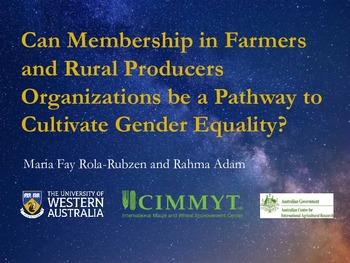
Can membership in farmers and rural producers organizations be a pathway to cultivate gender equality?
The effect of membership in producer organizations on women's empowerment: Evidence from Kenya
